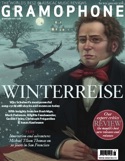Texte paru dans: / Appeared in: |
|
|
Outil de traduction (Très approximatif) |
|
|
Reviewer:
David
Vickers Ivan Alexandre’s rigorously historicist production of Hippolyte et Aricie requires that singers almost always face the front and sing downstage, even when addressing lines to each other. Baroque-style gestures are used to convey reactions of surprise, argument, sorrow, love, jealousy, grief, pleasure and so on. Sliding flat scenery enables instant changes, although Alexandre dispenses with the whistle that would have signalled the scene changes in the early 18th century. The controlled delivery of the drama is consequently unhurried and there are subtle ideas that might not be obvious at first viewing, such as Phaedra’s pride insinuated discreetly by her initial failure to bow her head when the goddess Diana descends (just one of many deus ex machina moments, all staged beautifully, for Diana, Mercury, Pluto and Neptune). The shockingly diatonic trio at the end of Act 3 (‘Quelle soudaine horreur ton destin nous inspire!’), in which the Furies prophesy a curse on Theseus for his impudent barging into Hades, is delivered eerily by suspended bodies hanging down, but with their heads the ‘right’ way up (a clever optical trick). Another telling stroke is that when a sea monster appears to devour Hippolyte, its jaws open to reveal his grandfather Neptune, who offers him a conciliatory hand without anyone else noticing it – clearly the curse upon Theseus is not intended to damage the innocent Hippolyte.
Stéphane Degout’s dignified
Theseus and Sarah Connolly’s anguished Phaedra both sing magnificently. Topi
Lehtipuu seems under a bit of strain as the ardent Hippolyte. Anne-Catherine
Gillet’s vibrato is a little too wide for Rameau’s delicate orchestration during
Aricie’s reluctant initiation (‘Temple sacré, séjour tranquille’), whereas Jaël
Azzaretti’s brighter voice is ideal for the brilliant ariette ‘Rossignols
amoureux’ in Act 5. Emmanuelle Haïm and Le Concert d’Astrée do justice to
Rameau’s notorious score, and Alexandre’s production has laudable virtues.
However, the attempt to replicate a candlelit environment means that fantastic
costumes full of greens, reds and golds (and also much of the scenery) end up
appearing rather lacklustre and brownish on screen, which seems at odds with the
kaleidoscopic sounds of Rameau’s music, and in lighter-hearted divertissements,
such as the hunting music in Act 4 and the happy pastoral celebrations in
Diana’s protected woodland paradise in Act 5, the chorus is incongruously
miserable. Not exactly life-affirming but certainly interesting. |
|
|
|
|
|
Cliquez l'un ou l'autre
bouton pour découvrir bien d'autres critiques de CD |
|




